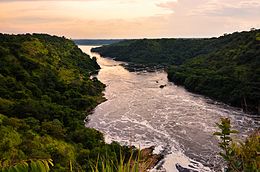Ever since construction began on the dam in 2011 — and indeed for decades before that — it has been a flash point in the region. The problem is that all parties have a point. The GERD would provide Ethiopia with clean, cheap and abundant energy — a much-needed addition to a country in which 55 percent of people lack electricity and 27 percent live in poverty. Failing to move forward with the dam’s filling would deprive 65 million Ethiopians of substantial energy potential, condemning them to inadequate living standards and sluggish economic prospects.
Yet to dam a river that provides 90 percent of Egypt’s freshwater will deepen that country’s perilous water crisis. In recent years, Egypt’s persistent water deficit has strained its agricultural industry and upended life in many parts of the country.
For Sudan, stuck in the middle, the cheap energy and flood regulation benefits are attractive, but the possible water shortages are too great to overlook. Khartoum has weighed in on the side of its downstream partner, Cairo.
——————————————————————————————————————————————————————————

—————————————————————————————————————————————————————————–
The issue is complex and requires careful mediation, but the Trump administration has taken a different approach. By cutting aid to Ethiopia, Washington appears to be pressuring it to accept Egypt’s demands: to slow the dam’s filling and sign up for deferential water-sharing quotas. In practice, the abrupt move has worsened the dispute — hardening Ethiopia’s resolve, emboldening Egypt’s nationalism and undermining the United States’ own credibility as an international mediator.
There is now little room for maneuver. Ethiopian Prime Minister Abiy Ahmed has begun filling the dam at haste, threatening to mobilize “millions” of people if Egypt gets in the way. The Egyptians in turn have tested Abiy’s words, launching cyber strikes against Ethiopia and leaving haunting warnings: “Prepare the Ethiopian people for the wrath of the Pharaohs.” As the two sides clash, many warn of a “water war,” the sort of resource scarcity crisis that may pull many neighbors apart in the future. With fears of sabotage still growing, Ethiopia took the extraordinary and ominous step this week of banning all flights over the dam.
If Washington still hopes to stave off war between two of its closest allies on the African continent, it will need to reverse course. Fortunately, the path forward does not rely on the United States. Negotiations will now be led by the African Union, a more honest and informed broker. However, the United States can still help.
The right strategy for defusing tensions is not to strip Ethiopia of 25 percent of its non-humanitarian assistance. That decision, made with little public warning or explanation, has left Ethiopia undaunted. While Ethiopia’s government has coolly requested that Washington “reconsider” its decision, Ethiopian civil society has been incensed by what they see as a betrayal. Ethiopian commentators place the move within the “legacy of British colonialism” and view it as “another example of Trump’s disregard for Africa,” harking back to Trump’s derisive comments about “shithole countries.” Others have asserted that Washington solely seeks to curry favor with Egyptian President Abdel Fatah al-Sissi, whom Trump has memorably referred to as his “favorite dictator.” African officials elsewhere have said that the United States “unnecessarily became a vector of instability in an already volatile situation.”
Instead, the United States should seek to solve Egypt’s water crisis. Egypt loses 50 percent of its freshwater to poor planning and regulation, wasting scant resources by using freshwater for industrial cooling, for example, when it could use seawater. The United States could alter the dynamics of the dispute by investing in more rigorous water-efficiency programs. Examples from Jordan to Kenya — where the United States has successfully reduced water waste by up to 41 percent and helped provide drought-adjustment innovations — show the potential of such an intervention.
As this crisis continues, Washington must realize that carrots nearly always fare better than sticks. Indeed, recent research has shown that as much as 90 percent of contemporary sanctions regimes fail to achieve their objectives. These measures are more likely to raise the stakes of disputes and make compromise more difficult.
It will be important for this administration, or the next one, to work toward a real solution on the Nile. If not, the region’s water crisis and power politics may provoke an avoidable war.
Stephen Paduano is a PhD candidate at the London School of Economics and the executive director of the LSE Economic Diplomacy Commission.
Statements, comments or opinions published in this column are of those of the author(s) and do not necessarily reflect the editorial policy of Warsan magazine. Warsan reserves the right to moderate, publish or delete a post without prior consultation with the author(s). To publish your article or your advertisement contact our editorial team at: warsan54@gmail.com

